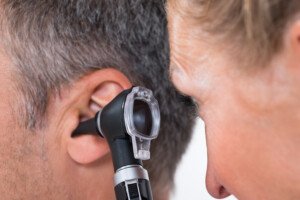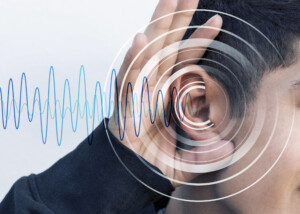
If you’ve been diagnosed with an acoustic neuroma or think you have one in one ear, and then you start developing symptoms in the opposite ear, this may be a situation in which you assume that there’s a connection.
“In general acoustic neuroma does not cause symptoms in the opposite ear because the nerves that go to the other ear are completely separate and are on the other side of the head,” says Hamid R. Djalilian, MD, Director of Neurotology and Skull Base Surgery, University of California, Irvine, School of Medicine.
There’s no reason to speculate that new-onset symptoms that relate to one ear are being caused by an acoustic neuroma in the other ear.
This holds true even if the symptoms seem to be identical, namely, tinnitus and hearing loss.
Other symptoms can be dizziness or issues with balance.
Suppose you were diagnosed with an acoustic neuroma, based on tinnitus and hearing loss that led you to have an MRI.
You then at some point down the road begin developing a similar tinnitus and hearing loss in the opposite ear.
Chances are exceedingly low – really, virtually zero – that these symptoms involving the other ear are being generated by a second acoustic neuroma. This condition is sporadic, not inherited.
The symptoms certainly aren’t being caused by the benign tumor in your first ear.
An acoustic neuroma in both ears is typically associated with a condition called neurofibromatosis type 2 (NF2).
Symptoms of NF2 usually start manifesting in one’s teens or early adulthood, and can affect eye movement, swallowing and speech, among other issues.
In other words, if you’re older than young adulthood and have NF2, you’ve already been suffering from very troubling symptoms for at least several years.
So what can be causing the new-onset symptoms in the opposite ear if it’s not the acoustic neuroma in your first ear?
It’s very possible that by coincidence, you have a much more common cause of the tinnitus and hearing loss going on, that just happened to be similar to the symptoms in the first ear.
For all you know it could be impacted wax inside your ear in combination with exposure to loud noise.
Nevertheless, you should have the situation investigated to see if a cause can be pinpointed, as tinnitus has numerous causes.



























